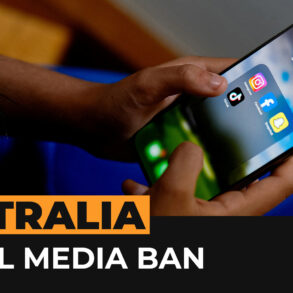The social media world is splintering, and it’ll pave the way for a new breed of influencer
Xavier Lorenzo/Getty Images
- Influencers must adapt to keep up in an oversaturated market.
- Audiences are tired of ads and seek authentic, expertise-driven content.
- Platforms like VSCO and Reddit have gained traction, with users craving genuine communities.
A splintered social media world is on the horizon — and it’s paving the way for a new, more authentic breed of influencer.
“People are just trying to find authentic communities,” Eric Wittman, CEO of photo-editing app VSCO, told Business Insider.
Wittman pointed to Reddit’s surge in users and skyrocketing earnings as an example. Bluesky’s user base has also risen in recent weeks to 21 million, and Mastodon is seeing more modest growth, with about 90,000 new sign-ups this month, according to its CEO.
In a white paper published earlier last year, Chand Rajendra-Nicolucci, who researches digital public infrastructure at the University of Massachusetts Amherst, said there’s a reboot taking place.
He believes that will include the rise of “very small online platforms” that host the kind of intimate conversations that are lacking on today’s major platforms.
“It will create a lot more fragmentation in the market,” said Wittman. “It’s going to be more interest-driven and more community-driven, which I think is healthy.”
Trust is key, losing it is costly
Audiences appear to be more discerning. Some are getting cynical about sponsored posts and bored of being sold to, especially when products or brands don’t align with their values.
For example, TikTok can feel like a pseudo-shopping channel where every other video seems to be an ad.
Kate Smoothy, an SEO specialist and the founder and director of Webhive Digital, is also a content creator with 47,000 TikTok followers. She told BI she only partners with brands that she believes in because she values her audience’s trust.
“As soon as you lose that trust, you may as well kiss the whole content creator thing goodbye,” she said.
Smoothy said she sees things changing, with different “tiers” of content creators emerging from the industry’s oversaturation. The top ones will have prioritized their community and built trust with their audience.
“Ultimately, the ‘lower down’ creators will struggle to establish themselves or pivot as the industry adapts to new platforms and changes in trends,” Smoothy said.
New social media horizons
Lucy Edgerley, the head of influence at the global social media agency Born Social, told BI that Gen Zers, in particular, are craving creativity, entertainment, and inspiration.
Some may choose alternative platforms like VSCO, Bluesky, and Mastodon over the major players of Instagram, TikTok, and X.
Others are following their favorite creators to subscription services like Substack or Patreon.
“Platforms like Pinterest, which foster ideas-driven content, are thriving because they align with this demand,” she said.
Wittman said that 57% of VSCO’s user base is between the ages of 18 and 24, and the app is seeing a million new sign-ups a month. He pointed to the lack of ads on the platform — none if users opt for the paid service, which starts at a monthly fee of $2.50.
“We are very restrictive on who can advertise on our platform,” Wittman said. “When we do these brand partnerships, we want to make sure that it’s a brand that kind of suits our principles and philosophies as well.”
Young people who have grown up with social media are learning the lessons about the dark side of it — the mental health toll, the bullying, and the over-consumerism — the hard way, he said.
“They’re looking for healthier places to go to where they’re not feeling manipulated,” he said.
Intellectual influencers will thrive
Not everyone sees it this way. While newer platforms such as Threads and Bluesky are reporting impressive numbers, Kim Murray, the founder of the influencer marketing agency Virality Boost, told BI that many influencers are likely to stay put with what they know.
“Most creators find it challenging to build and maintain audiences across an ever-expanding array of platforms,” she said.
Audiences are already more selective than they used to be, she added, so influencers will have to evolve wherever they are, regardless of their follower count.
“This shift signals a transformation rather than an endpoint,” Murray said. “The real opportunity lies in how influencers adapt to meet this heightened selectivity by focusing on distribution strategies that deliver genuine value to both audiences and brands.”
Wittman said the bar has been raised, and he sees a move toward “intellectual influencers” emerging, where people gravitate to creators who offer something unique.
“They actually want experts,” he said. “They want it to be fun, and they want it to be creative. They don’t want just some crazy infomercial.”
Edgerley agreed we’re witnessing a shift. Despite the success of YouTube shorts and TikTok, long-form storytelling is on the rise, she said, suggesting users want deeper engagement rather than endless scrolling.
“Ultimately, it’s about meeting audiences with humor, inspiration, and substance,” she said. “Not just ads.”







